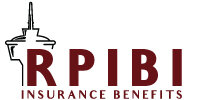DISABILITY INSURANCE
Employer-Sponsored Disability Insurance
There are several subtypes that may or may not be separate parts of an Employer-sponsored benefits package: workers' compensation and more general (but very basic) disability insurance policies.
Individual Disability Insurance
For clients whose employers do not provide benefits, and self-employed individuals who require disability coverage, you may purchase your own policy. Premiums and available benefits for individual coverage vary considerably between different companies, for individuals in different occupations. In general, premiums are higher for policies that provided more monthly benefit, pay the benefit for a longer period of time, and start payments for benefits more quickly following a disability. Premiums also tend to be higher for policies that define disability in broader terms, meaning the policy would pay benefits in a wider variety of circumstances.
Business Overhead Expense Disability Insurance
Business Overhead Expense (BOE) coverage is designed to reimburse a business for overhead expenses should the owner experience a disability. Eligible benefits include: Rent or mortgage payments, utilities, leasing costs, accounting/billing and collection service fees, business insurance premiums, employee salaries, employee benefits, property tax, and other regular monthly expenses.
Key Man Disability Insurance
Key Man Disability Insurance provides crucial benefits for any functioning business to protect the company from financial hardship that may result from the loss of a key employee due to disability. Key Man coverage provides cash flow to help a company move forward and maintain a profit in the event a key employee becomes disabled. The company could use the disability benefits to hire a temporary employee should the disabled employee's prognosis appear to be a short-term disability. In the unfortunate circumstance of a permanent disability, benefits would then be used to help defray the costs related to hiring a replacement employee, such as recruitment, training, startup, loss in revenue and unfunded salary continuation costs.
Workers' Compensation
Workers' compensation offers payments to employees who are (usually temporarily, rarely permanently) unable to work because of a job-related injury. However, workers' compensation is in fact more than just income insurance, because it may pay compensation for economic loss (past and future), reimbursement or payment of medical and like expenses (functioning in this case as a form of health insurance), general damages for pain and suffering, and benefits payable to the dependents of workers killed during employment (functioning in this case as a form of life insurance). Workers compensation is a good benefit for on the job accidents but the weakness is the lack of coverage while not working. Statistics have shown that the majority of disabilities occur while not working and therefore not covered under workers compensation.
